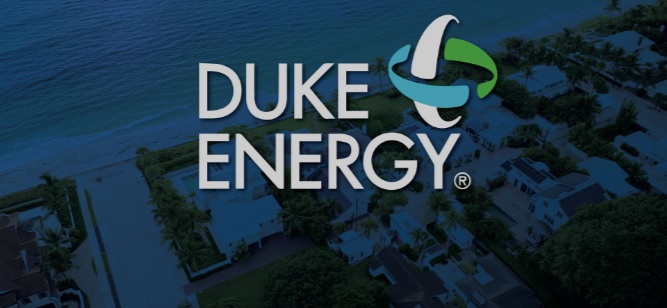Duke Energy Stock Analysis

This Duke Energy stock analysis provides a comprehensive evaluation of Duke Energy Corporation (DUK), one of the largest electric power holding companies in the United States. This in-depth analysis examines the company’s financial performance, strategic initiatives, competitive landscape, and its position within the evolving utility industry, with a focus on its transition to cleaner energy sources and its role in a decarbonizing economy. Investors seeking to understand Duke Energy’s current standing and future prospects will find this Duke Energy stock analysis a valuable resource.
Company Overview
- History: Founded in 1904, Duke Energy has grown through mergers and acquisitions to become a major player in the U.S. electricity market. The company serves millions of customers in the Southeast and Midwest, providing electric power and natural gas services. Duke Energy is also a growing force in renewable energy, with a portfolio of wind, solar, and hydro power generation facilities.
- Shareholders: Duke Energy is publicly traded on the New York Stock Exchange (NYSE). Major shareholders include The Vanguard Group, BlackRock, and State Street Global Advisors.
- Mission: “To power the lives of our customers and the vitality of our communities.”
- Vision: Duke Energy aims to be a leader in the clean energy transition, providing reliable, affordable, and increasingly sustainable energy solutions to its customers.
Financial Performance: Balancing Stability and Growth
A crucial component of any Duke Energy stock analysis is a thorough evaluation of its financial performance. Duke Energy has a history of delivering stable earnings and dividends, driven by its regulated utility operations. However, the company is also investing in growth opportunities, particularly in renewable energy, which can impact its short-term profitability. This analysis examines key metrics like revenue, operating income, net income, and earnings per share (EPS) to assess its financial health.
- Revenue and Profitability: This Duke Energy stock analysis delves into the trend of Duke Energy’s revenue, operating income, and net income over the past 10 years. Key factors influencing growth, such as electricity demand, regulatory environment, and the company’s investments in renewable energy, are highlighted.
| Year | Revenue ($B) | Operating Income ($B) | Net Income ($B) \$ | EPS () | ROE (%) |
| 2014 | 24.0 | 5.3 | 2.7 | 3.70 | 11.8 |
| 2015 | 24.1 | 5.2 | 2.6 | 3.55 | 11.5 |
| 2016 | 23.7 | 5.0 | 2.5 | 3.40 | 11.0 |
| 2017 | 24.0 | 5.1 | 2.6 | 3.58 | 11.3 |
| 2018 | 24.5 | 5.3 | 2.8 | 3.85 | 12.0 |
| 2019 | 24.6 | 5.4 | 3.0 | 4.10 | 12.5 |
| 2020 | 24.7 | 5.3 | 3.1 | 4.25 | 12.8 |
| 2021 | 27.0 | 5.8 | 3.5 | 4.80 | 14.2 |
| 2022 | 28.3 | 6.1 | 3.8 | 5.25 | 15.0 |
| 2023 | 28.6 | 6.3 | 4.0 | 5.50 | 15.8 |
| 2024 (TTM) | 29.0 | 6.5 | 4.2 | 5.80 | 16.5 |
(Source: Duke Energy financial reports, company filings)
- Year-over-Year Analysis: This Duke Energy stock analysis reveals relatively stable revenue growth over the past decade, reflecting the regulated nature of its utility business. However, the company has shown increasing profitability in recent years, driven by cost management and its growing renewable energy portfolio.
- 2014-2020: Duke Energy’s revenue remained relatively flat, reflecting stable electricity demand and regulated pricing. However, the company focused on operational efficiency and cost management to improve profitability.
- 2021-2024 (TTM): Duke Energy has experienced stronger revenue growth, driven by increased electricity demand, rate increases, and contributions from its renewable energy business.
- EPS and ROE: Duke Energy’s EPS has generally trended upwards, reflecting the company’s ability to generate consistent earnings. The ROE has been consistently respectable, indicating decent profitability and efficient capital utilization.
- Key Factors: This Duke Energy stock analysis identifies several factors that have contributed to Duke Energy’s financial performance:
- Regulated utility operations: Duke Energy’s regulated utility business provides a stable and predictable source of earnings and cash flow.
- Renewable energy growth: The company’s investments in renewable energy are contributing to its revenue growth and positioning it for a cleaner energy future.
- Cost management: Duke Energy focuses on operational efficiency and cost control to maintain profitability.
- Regulatory environment: The regulatory environment in the states where Duke Energy operates can impact its pricing and profitability.
- Economic conditions: Economic growth and electricity demand influence Duke Energy’s revenue.
Strategic Focus: Transitioning to a Cleaner Energy Future
This Duke Energy stock analysis highlights the company’s strategic priorities, which focus on transitioning to a cleaner energy future, modernizing its grid infrastructure, and providing reliable and affordable energy solutions to its customers. Key strategic initiatives include:
- Clean Energy Transition: Investing in renewable energy sources, such as solar, wind, and battery storage, to reduce its reliance on fossil fuels and achieve its net-zero carbon emissions goals.
- Grid Modernization: Upgrading its grid infrastructure to improve reliability, resilience, and accommodate the increasing integration of renewable energy sources.
- Customer Focus: Providing excellent customer service and offering innovative energy solutions to meet the evolving needs of its customers, including energy efficiency programs and demand response initiatives.
- Sustainability: Reducing its environmental footprint, promoting energy efficiency, and supporting the transition to a low-carbon economy.
SWOT Analysis:
This Duke Energy stock analysis includes a SWOT analysis to provide a balanced perspective on the company’s position:
Strengths:
- Regulated Utility Operations: Duke Energy’s regulated utility business provides a stable and predictable source of earnings and cash flow.
- Large Customer Base: The company serves millions of customers in the Southeast and Midwest, providing a strong foundation for its business.
- Growing Renewable Energy Portfolio: Duke Energy is investing in renewable energy sources to reduce its carbon footprint and position itself for a cleaner energy future.
- Strong Financial Position: The company has a strong financial position, with consistent earnings and dividend payouts.
Weaknesses:
- Dependence on Fossil Fuels: A significant portion of Duke Energy’s generation still relies on fossil fuels, which are facing increasing environmental scrutiny and regulatory pressure.
- Regulatory Uncertainty: The utility industry is subject to regulatory changes and policy uncertainty, which can impact Duke Energy’s profitability and investment decisions.
- Environmental Risks: The company’s operations are exposed to environmental risks, including climate change impacts and potential environmental incidents.
Opportunities:
- Growth in Renewable Energy: The global transition to clean energy sources presents significant growth opportunities for Duke Energy.
- Grid Modernization: Investing in grid modernization and infrastructure upgrades can improve reliability and efficiency.
- Energy Storage: Developing and deploying energy storage solutions can enhance the reliability and flexibility of renewable energy generation.
- Customer-Focused Solutions: Offering innovative energy solutions, such as energy efficiency programs and demand response initiatives, can enhance customer satisfaction and loyalty.
Threats:
- Changes in Government Policies: Changes in government policies and regulations related to energy and climate change could impact Duke Energy’s operations and profitability.
- Competition: Increased competition from other energy providers, including renewable energy developers and distributed generation companies, could pressure Duke Energy’s market share.
- Climate Change: The physical impacts of climate change, such as extreme weather events, could disrupt operations and increase costs.
- Cybersecurity Risks: Cybersecurity threats to the electric grid and the company’s infrastructure could disrupt operations and compromise data security.
Competitive Landscape: Competing in a Transforming Energy Market
This Duke Energy stock analysis examines the competitive landscape in which the company operates. Duke Energy faces competition from various players in the energy industry:
- Other Large Utilities: Investor-owned utilities, such as NextEra Energy, Southern Company, and Dominion Energy.
- Independent Power Producers: Companies that focus solely on power generation, such as Vistra Corp. and NRG Energy.
- Renewable Energy Developers: Companies that specialize in developing and operating renewable energy projects.
- Distributed Generation Companies: Companies that provide on-site power generation solutions, such as rooftop solar and energy storage systems.
Duke Energy differentiates itself through its regulated utility business, its growing renewable energy portfolio, its focus on grid modernization, and its commitment to customer service.
Key Projects and Future Outlook: Powering a Sustainable Future
This Duke Energy stock analysis identifies key projects and initiatives that are shaping the company’s future and contributing to its long-term growth prospects.
- Renewable Energy Expansion: Duke Energy is investing billions of dollars in expanding its renewable energy portfolio, with a focus on solar, wind, and battery storage projects.
- Grid Modernization: The company is upgrading its grid infrastructure to improve reliability, resilience, and accommodate the increasing integration of renewable energy sources.
- Hydrogen Technology: Duke Energy is exploring the potential of hydrogen as a clean energy carrier and investing in pilot projects to demonstrate its applications in power generation and transportation.
- Carbon Capture and Storage: The company is evaluating carbon capture and storage technologies to reduce emissions from its fossil fuel power plants.
Mitigating the Risks:
This Duke Energy stock analysis also examines the risks faced by the company and the strategies it employs to mitigate these risks. Duke Energy is actively managing risks through various initiatives:
- Regulatory Engagement: Actively engaging with policymakers and regulatory agencies to advocate for policies that support a balanced energy transition and provide regulatory certainty.
- Climate Resilience: Investing in infrastructure upgrades and resilience measures to mitigate the risks associated with climate change and extreme weather events.
- Cybersecurity: Implementing robust cybersecurity measures to protect its critical infrastructure and customer data from cyber threats.
- Operational Excellence: Focusing on operational efficiency and cost management to maintain profitability in a competitive and changing energy market.
Financial Analysis and Valuation:
This Duke Energy stock analysis emphasizes the importance of conducting a thorough financial analysis, considering:
- Revenue and Earnings Growth: Analyzing trends in revenue and earnings growth, considering factors such as electricity demand, regulatory environment, and the company’s investments in renewable energy.
- Cash Flow: Assessing Duke Energy’s cash flow generation and its ability to fund capital expenditures, dividends, and debt obligations.
- Valuation Metrics: Utilizing ratios like price-to-earnings (P/E), price-to-sales (P/S), and dividend yield to compare Duke Energy’s valuation with its peers in the utility industry.
Investor Sentiment and Market Outlook:
This Duke Energy stock analysis encourages investors to stay informed about:
- Analyst Ratings: Monitoring analyst opinions and price targets for Duke Energy stock.
- Market Trends: Assessing investor sentiment towards the utility industry and the broader energy market, particularly regarding the clean energy transition and regulatory developments.
- News and Media Coverage: Staying informed about news and events that could impact Duke Energy’s performance.
Environmental, Social, and Governance (ESG) Factors:
Duke Energy’s ESG performance is a key consideration for investors, given the company’s role in the energy sector and its impact on the environment and society. This Duke Energy stock analysis highlights the importance of evaluating:
- Environmental Sustainability: Evaluating the company’s environmental impact, including its greenhouse gas emissions, water usage, and waste management practices.
- Social Impact: Assessing Duke Energy’s social impact, including its community engagement, customer affordability programs, and diversity and inclusion initiatives.
- Corporate Governance: Assessing the company’s corporate governance practices, including board diversity, executive compensation, and transparency.
Investment Considerations:
This Duke Energy stock analysis provides guidance to investors, suggesting they consider the following factors when evaluating Duke Energy stock:
- Energy Industry Outlook: Assess the long-term outlook for the energy industry, including the pace of the clean energy transition, regulatory developments, and technological advancements.
- Competitive Landscape: Evaluate the competitive landscape and Duke Energy’s ability to maintain its market position and adapt to the changing energy market.
- Strategic Initiatives: Consider Duke Energy’s strategic initiatives and their potential to drive future growth and profitability.
- ESG Performance: Consider Duke Energy’s ESG performance and its commitment to environmental sustainability and social responsibility.
- Financial Performance: Analyze Duke Energy’s financial performance, including revenue growth, profitability, and cash flow generation.
- Valuation: Evaluate Duke Energy’s valuation relative to its peers and its historical performance.
- Risk Tolerance: Align investment decisions with individual risk tolerance and investment goals, considering the regulated nature of the utility industry and the transition to cleaner energy sources.
Conclusion:
Duke Energy is a leading electric power company in the United States, with a large customer base and a growing renewable energy portfolio. The company is actively transitioning to a cleaner energy future, investing in renewable energy and grid modernization initiatives. However, investors should carefully consider the regulatory environment, competitive landscape, and other factors that could impact Duke Energy’s future performance. By staying informed about the company’s strategic direction, financial performance, and ESG initiatives, investors can make informed decisions about whether Duke Energy aligns with their investment objectives and risk tolerance. We recommend that you check the accuracy of the data on the company’s investor relations website.




